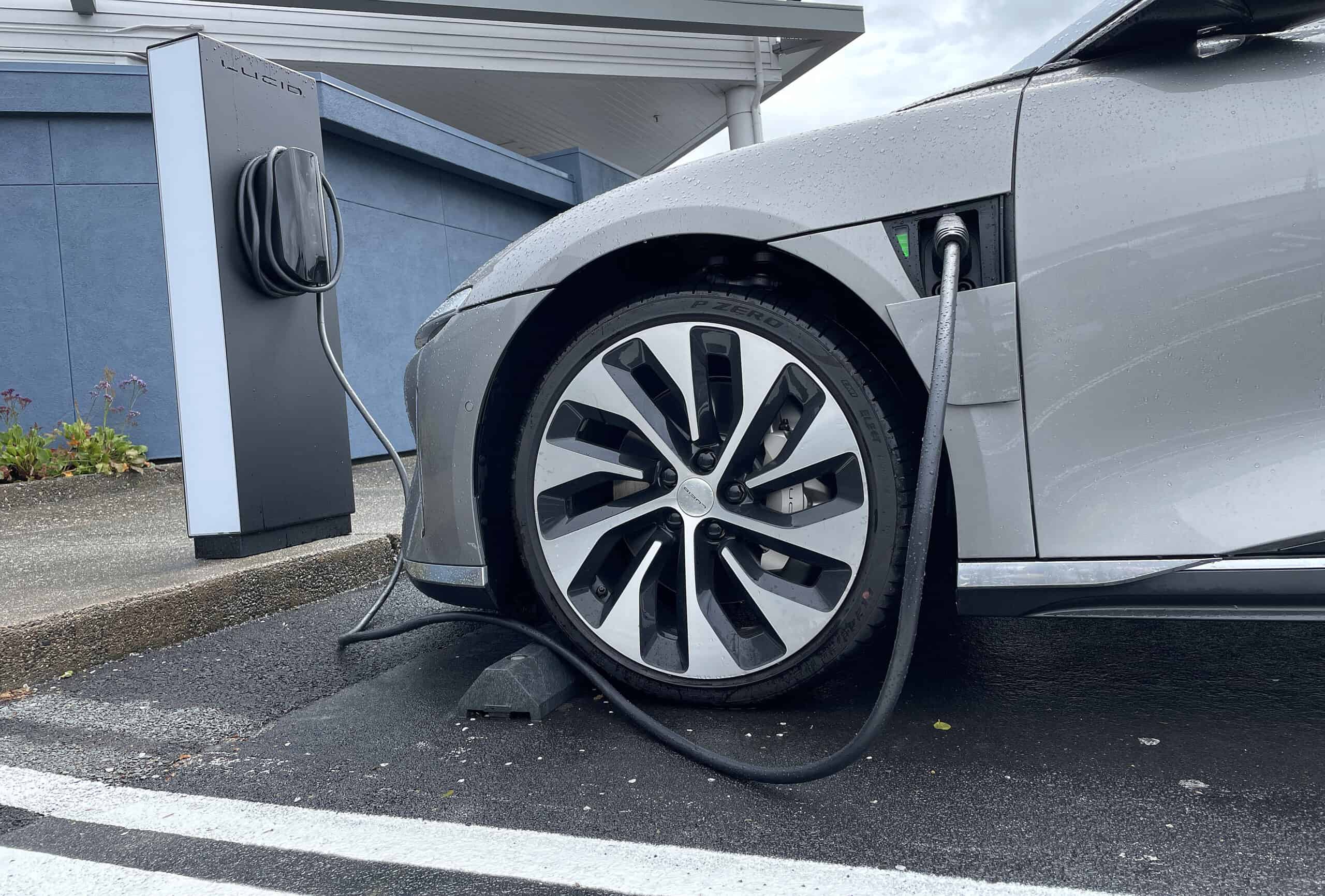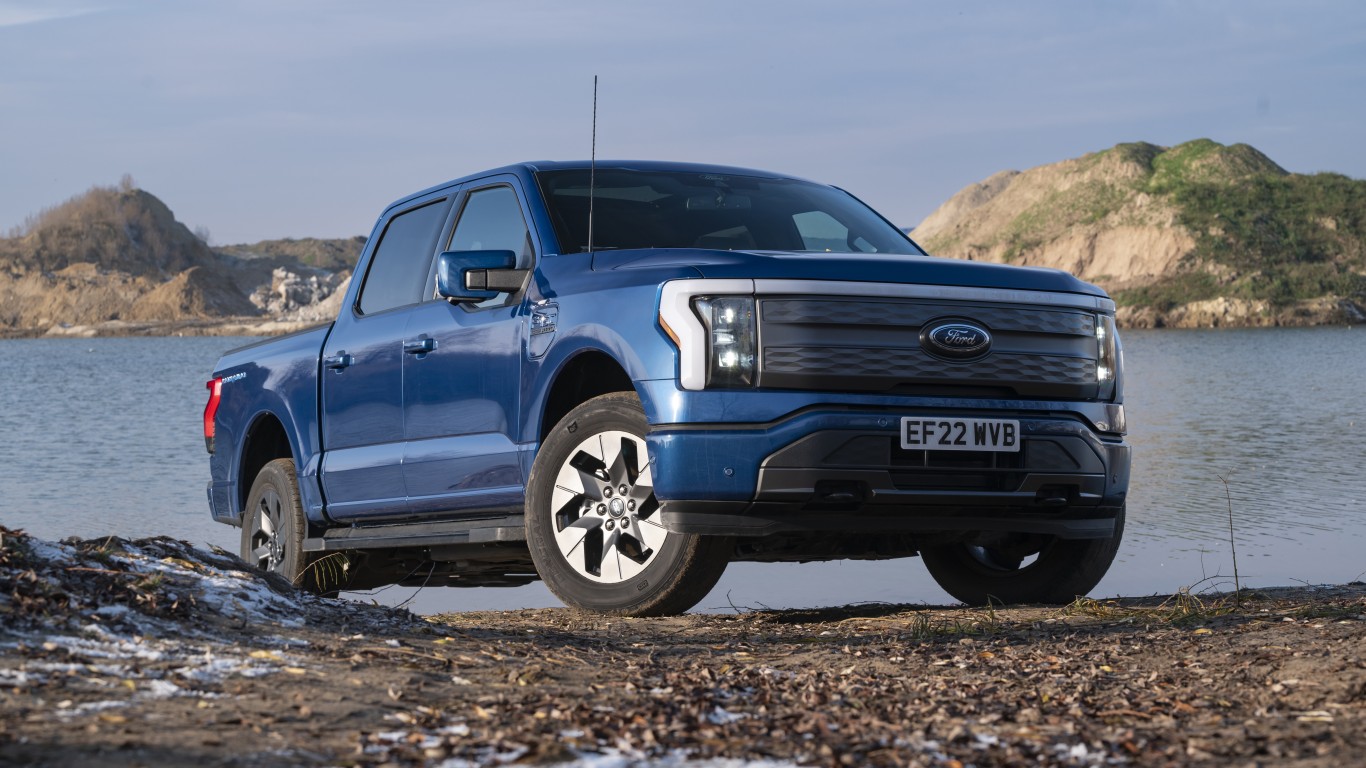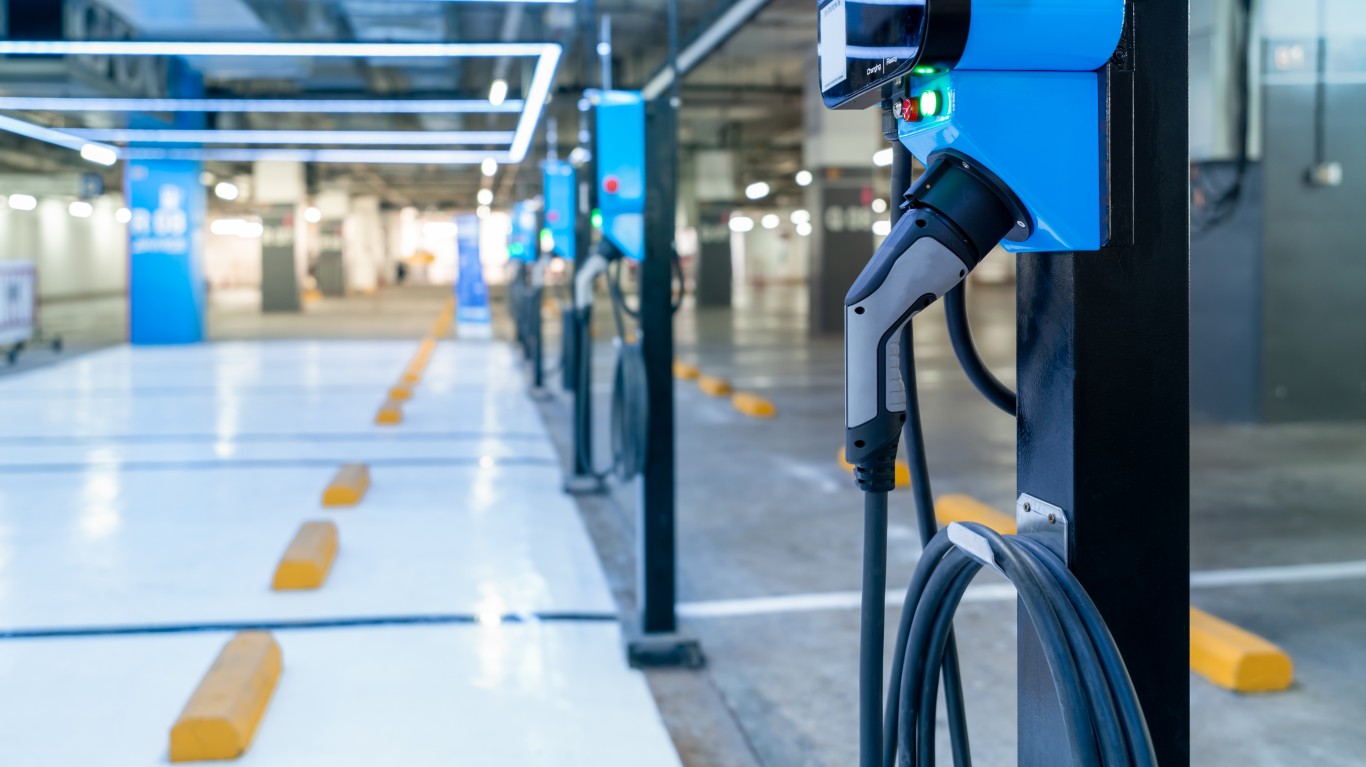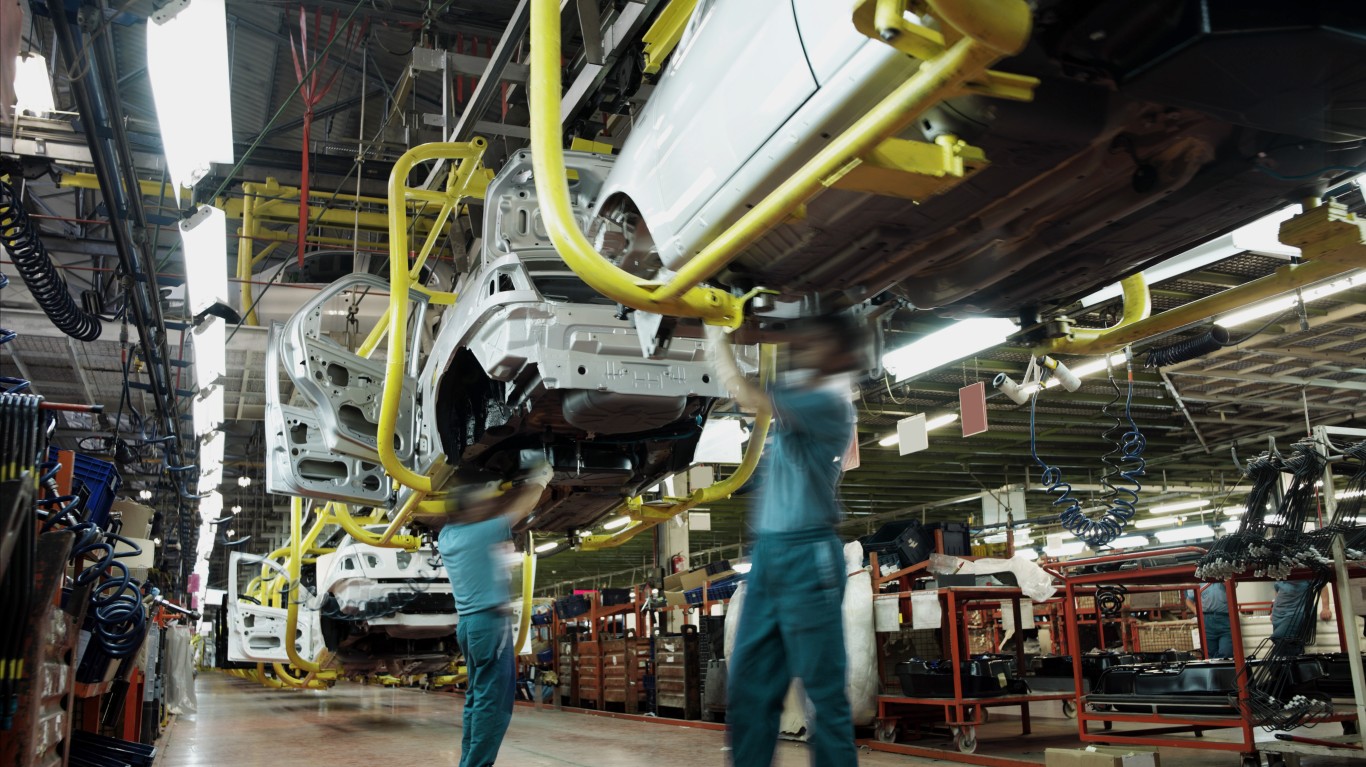
24/7 Wall St. Insights
- Ford wants to repurpose a Canadian EV plant into one for gas-powered super duty trucks.
- The move could reflect a change in course for automakers.
- Ford pays dividends to its stockholders, but you may not have even heard of two major dividend paying stocks. We reveal them in our free report.
Ford took a major turn recently when it decided to begin converting a massive Canadian EV plant into one that constructs gas-powered super duty trucks.
Despite the hype behind EVs and the government’s push toward clean energy, Ford and the auto industry at large seem to be looking at what’s on the ground: concerns about battery performance, charging infrastructure, consumer demand, and investor sentiment.
This raises the question about the future of EVs and where they will sit among the lots of the nation’s largest automakers.
Investment in super duty trucks

Ford has decided to convert an EV plant in Canada into a super duty truck building machine for approximately $3 billion. Ford’s super-duty trucks are known for their cargo capabilities, size, and ruggedness. They are also some of the brand’s top-selling vehicles.
Significance of Super Duty Trucks

Super duty trucks include high selling gas-powered titans like the F-150 pickup. The truck is known for its reliability and capacity to transport massive loads, making it a key vehicle for skilled laborers such as plumbers, farmers, and construction workers.
Ford’s EV Commitments

Ford’s move comes after the company said it’ll pump $30 billion into EVs. Its CEO Jim Farley said in 2023 that by 2024, the company would be at capacity to produce 600,000 EVs a year. But only sold 22 thousand in the second quarter of 2024.
F-150 Lightning Launch

In 2022, Ford launched its F-150 Lightning pick-up truck. The highly anticipated all-electric model was set to rival its high selling gas-fueled counterpart.
But overall, sales weren’t too electric.
Market Realities

Ford sold about 24,000 F-150 Lightnings in 2023, marking a 55% increase from 2022. But into 2024, dealers were reporting slower sales, and Ford later cut two thirds of employees working at its F-150 Lighting plants.
Consumer Preferences

Despite the buzz over EVs fueled by environmentally-conscious consumers, some users are seeing challenges in owning and maintaining EVs.
Many are raising concerns over battery effectiveness across different climates, the proximity of charging stations, and more. And these worries have some EV owners thinking about their commitment to EVs.
In fact, forty-six percent of EV owners in the U.S. said they’d likely opt for a combustion-powered vehicle when they buy their next car, according to a survey by McKinsey & Co.
Industry trends

The challenges raised by EVs may push the auto industry to turn back.
“I’m going to make a prediction,” said Doug McIntyre in an interview with 24/7 Wall St. “More and more of these factories are going to be repurposed back to gas engine cars or hybrids. The myth that half the cars sold in the United States would be EVs five years from now, which is what the government was talking about and all that. What the car companies were yakking about. That’s not going to happen.”
Investor sentiment

The auto industry’s race to adopt clean energy and make it profitable has put some investors on the sidelines.
The repurposing of plants, slowing sales, and consumer frustration aren’t necessarily good indicators of a company worth investing in. And that has put the big automakers at a crossroads.
Future Predictions

Ford is one of the nation’s top auto manufacturers, so their move to repurpose an EV plant into one that produces gas-powered super duty trucks should raise some flags, especially after the company announced it was making a strong push toward EVs.
Some analysts believe EV market trends may push the auto industry to change lanes and go back to what was making them money.
Why we covered this

Ford is one of the nation’s largest automakers. So its moves can influence wider industry trends. For investors, this is important because this information can guide their trading strategies. Ford’s recent decision to repurpose an EV plant into one for gas-powered trucks could net in profits for the company and its investors. But it may turn off some investors who want their stocks to reflect their values. So we created this walkthrough of Ford’s recent move, as well as the possible reasons, to help inventors make the right decisions for themselves.
It’s Your Money, Your Future—Own It (sponsor)
Are you ahead, or behind on retirement? For families with more than $500,000 saved for retirement, finding a financial advisor who puts your interest first can be the difference, and today it’s easier than ever. SmartAsset’s free tool matches you with up to three fiduciary financial advisors who serve your area in minutes. Each advisor has been carefully vetted and must act in your best interests. Start your search now.
If you’ve saved and built a substantial nest egg for you and your family, don’t delay; get started right here and help your retirement dreams become a retirement reality.
Thank you for reading! Have some feedback for us?
Contact the 24/7 Wall St. editorial team.





